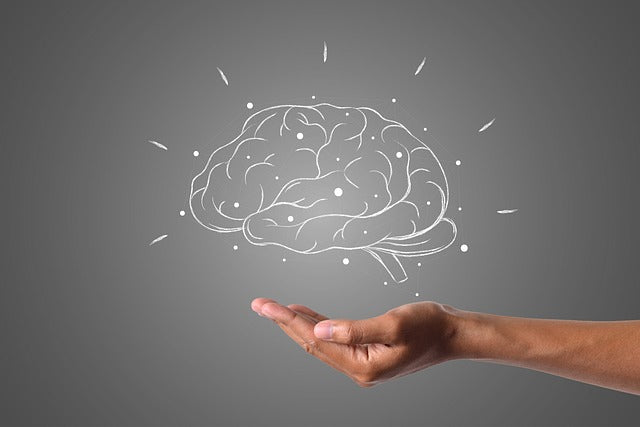While summer is coming to an end, record-breaking heat waves continue to strike across the United States, putting countless people at risk for dehydration. Dehydration, an excessive loss of body water, impairs both physical and mental function and is especially dangerous when combined with exposure to high outdoor temperatures. Read on to learn why optimal hydration is crucial and how supplementation with deep-sea water can enhance your hydration status.
How Does Dehydration Affect Your Body?
Dehydration has systemic harmful effects on the body, impacting tissues ranging from skeletal muscle to the brain.
Dehydration and Exercise Performance
If you’ve ever exercised in a dehydrated state, then you know how significantly it affects your exercise performance! Dehydration, particularly in hot environments, decreases VO2 max, impairs aerobic and anaerobic exercise performance, negatively alters fatigue perception, and increases the risk of heat illness-induced fatality.1, 2,3 Dehydration exerts these harmful effects by altering central hemodynamics, thus impairing blood flow and oxygen delivery to tissues and thermoregulatory function.
Dehydration and the Brain
Emerging research indicates that dehydration doesn’t just impair people physically; it also harms cognitive function and mental health. In team sport athletes, the combination of dehydration and heat stress impairs cognitive and technical performance along with physical performance.4 In non-exercising, healthy young women, the restriction of drinking water for just 24 hours leads to increased sleepiness, fatigue, and confusion, and decreased alertness and happiness.5 Conversely, increasing water intake from < 1.2 L/day to over 2.0 L/day has been found to significantly decrease fatigue and confusion, indicating that hydration is essential for optimal energy and mental wellbeing!6
Optimal hydration may also protect your brain health over the long-term. Chronic dehydration has recently been linked to an increased risk of neurocognitive disorders, such as dementia, due to its effects on the misfolding and aggregation of proteins in the brain.7
Children and Older Adults Are Especially Sensitive to Dehydration
School is back in session and fall sports are beginning, increasing the demands on children’s brains and bodies. Concerning research indicates that dehydration is common in children and impairs their ability to perform well in school. Dehydration also increases the risk of children experiencing heat-related complications during athletic activities.8,9 Children are more susceptible to dehydration than adults due to differences in body-cooling mechanisms and thirst sensations.10 Conversely, well-hydrated children demonstrate increased processing speed and improved attention in school.11
While the sports drink industry has us convinced that Gatorade is the answer for keeping kids hydrated, the truth is that most sports drinks are full of sugars and additives that are not conducive to optimal health! Instead, set a healthy precedent for your kids by sending them off to school and sports practice with a bottle of filtered water. Add several slices of lemon or lime, or a handful of berries, to lightly flavor the water and make staying hydrated enjoyable! If your kids are engaging in moderate to heavy physical exercise, consider adding our Hypertonic Elixir to their water for hydration support.
Children aren’t the only people highly sensitive to dehydration; older adults are also at an increased risk of dehydration due to reduced thirst mechanisms caused by changes in cerebral blood flow and altered activation of the anterior cingulate cortex in the brain. As you age, you need to be even more vigilant about hydration, particularly during the hot summer months!
How Much Water Do You Really Need to Drink?
Is it true that people should drink 8 glasses of water a day, or is it a myth? Research indicates that there is no single daily water requirement that fits the needs of all people. Adequate Intakes (AI) have been established to indicate the minimum intake of water that should prevent dehydration in most people. The AI for men is 3.7 L of water/day while the AI for women is 2.7 L/day.12
While the AI guidelines are useful, the amount of water you require for optimal health depends on individual factors such as your body mass, activity level, the climate in which you live, and the water content of your diet. A good rule of thumb is to aim for at least the AI of water and drink more during the summer months, when you exercise in the heat, or if you are traveling and unacclimated to hot weather.
Deep-Sea Minerals Enhance Hydration
Staying vigilant about your water intake is essential for preventing dehydration and keeping your body and brain healthy. However, you can significantly enhance the hydrating properties of your drinking water with the addition of deep seawater. Deep-sea water is harvested from the depths of the ocean, where phytoplankton blooms and organic decomposition facilitate the accumulation of numerous minerals, including magnesium, calcium, chloride, chromium, sodium, potassium, selenium, vanadium, and zinc. The minerals and other bioactive factors in deep-sea water hydrate the body on a cellular level, making it the perfect natural alternative to commercial sports drinks for staying hydrated when temperatures rise.13
If you exercise in the heat, deep-sea water is one supplement you'll definitely want to add to your routine! It facilitates a faster return to baseline hydration status after dehydrating physical activity, reduces exercise-induced muscle damage biomarkers, and accelerates recovery after exercising in a high-temperature environment.14, 15 Deep-sea water also enhances blood flow to the brain during exercise, supporting a process called the “cerebral hemodynamic response,” and ultimately inhibiting the onset of exercise-induced fatigue.16 Deep-sea water may be especially beneficial for people who are unacclimated to heat, have a low fitness level, or are training in a hot environment, since these situations put significant physical stress on the body and amplify the risk of dehydration.17 ,18
Beat the Heat On-the-Go with Our Hypertonic Elixir
Deep-sea minerals offer a premier hydration source for health-conscious individuals. Our Hypertonic Elixir, which contains cold-processed pure deep-sea water packaged in sachets, is perfect for convenient on-the-go hydration. Add the contents of one sachet to filtered water in a non-toxic stainless-steel or glass water bottle to keep yourself hydrated no matter how high temperatures rise!
References
- Barley OR, et al. Acute dehydration impairs endurance without modulating neuromuscular function. Front Physiol. 2018; 9: 1562.
- Carlton A, Orr RM. The effects of fluid loss on physical performance: A critical review. J Sport Health Sci. 2015; 4(4): 357-363.
- Coris EE, et al. Heat illness in athletes: the dangerous combination of heat, humidity and exercise. Sports Med. 2004; 34(1): 9-16.
- Nuccio RP, et al. Fluid balance in team sport athletes and the effect of hypohydration on cognitive, technical, and physical performance. Sports Med. 2017; 47(10): 1951-1982.
- Pross N, et al. Influence of progressive fluid restriction on mood and physiological markers of dehydration in women. Br J Nutr. 2013; 109(2): 313-321.
- Pross N, et al. Effects of changes in water intake on mood of high and low drinkers. PLoS One. 2014; 9(4): e94754.
- Sfera A, et al. Dehydration and cognition in geriatrics: A hydromolecular hypothesis. Front Mol Biosci. 2016; 3: 18.
- Bar-David Y, et al. The effect of voluntary dehydration on cognitive functions of elementary school children. Acta Paediatr. 2005; 94(11): 1667-1673.
- Bonnet F, et al. French children start their school day with a hydration deficit. Ann Nutr Metab. 2012; 60(4): 257-263.
- D’ Anci KE, et al. Hydration and cognitive function in children. Nutr Rev. 2006; 64(10 Pt 1): 457-464.
- Edmonds CJ, Jeffes B. Does having a drink help you think? 6-7-Year-old children show improvements in cognitive performance from baseline to test after having a drink of water. Appetite. 2009; 53(3): 469-472.
- Armstrong LE, Johnson EC. Water intake, water balance, and the elusive daily water requirement. Nutrients. 2018; 10(12): 1928.
- Keen DA, et al. The impact of post-exercise hydration with deep-ocean mineral water on rehydration and exercise performance. J Int Soc Sports Nutr. 2016; 13: 17.
- Hou CW, et al. Deep ocean mineral water accelerates recovery from physical fatigue. J Int Soc Sports Nutr. 2013; 10(1): 7.
- Stasiule L, et al. Deep mineral water accelerates recovery after dehydrating aerobic exercise: a randomized, double-blind, placebo-controlled crossover study. J Int Soc Sports Nutr. 2014; 11: 34.
- Ching-Yin W, et al. Deep ocean mineral supplementation enhances the cerebral hemodynamic response during exercise and decreases inflammation postexercise in men at two age levels. Front Physiol. 2017; 8: 1016.
- Trangmar SJ, Alonso JG. Heat, hydration and the human brain, heart and skeletal muscles. Sports Med. 2019; 49(Suppl 1): 69-85.
- Cheung SS, McLellan TM. Heat acclimation, aerobic fitness, and hydration effects on tolerance during uncompensable heat stress. J Appl Physiol. 1998; 84(5): 1731-1739.




